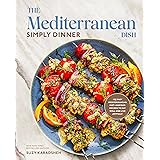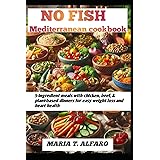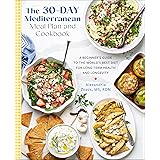Are you looking for a dietary approach that promises not only delicious food but also a pathway to a longer, healthier life without restrictive calorie counting? The video above provides an excellent overview of the Mediterranean diet, a lifestyle choice celebrated globally for its health benefits.
For five consecutive years, the U.S. News & World Report has crowned the Mediterranean diet as the best overall diet, a testament to its sustainable and effective approach to wellness. It’s more than just a meal plan; it’s an inclusive eating pattern that embraces a rich variety of foods, allowing you to eat until you’re satisfied while nourishing your body.
Unlocking the Health Benefits of the Mediterranean Diet
The widespread acclaim for the Mediterranean diet isn’t just hype; it’s backed by substantial research. The plant-centric nature of this eating style lays a robust foundation for numerous health advantages.
-
Improved Body Composition and Obesity Reduction: Adopting a Mediterranean eating pattern can lead to significant improvements in your body composition. Imagine if you could naturally shed excess weight, not through deprivation, but by enjoying abundant, flavorful meals. This approach not only helps with weight management but also provides protection against a myriad of related diseases.
-
Reduced Cardiovascular Disease Risk: One of the most significant benefits highlighted by studies is the diet’s profound impact on heart health. By emphasizing healthy fats, lean proteins, and nutrient-dense plants, it actively reduces the risk of cardiovascular diseases and associated mortality. This means a healthier heart to carry you through life’s adventures.
-
Offsetting Age-Related Weight Gain: As we navigate life, particularly after reaching age 40, many individuals experience a natural tendency toward weight gain. The Mediterranean diet offers a powerful strategy to counteract this, helping to maintain a healthy weight through middle age and beyond. It’s about proactive wellness at every stage.
-
Blood Sugar Control and Type 2 Diabetes Alleviation: For those managing blood sugar levels or living with type 2 diabetes, the Mediterranean diet can be a game-changer. Its focus on whole grains, legumes, and fiber-rich vegetables helps stabilize blood glucose, alleviating symptoms and supporting overall metabolic health. This can lead to more consistent energy levels and reduced reliance on certain medications.
The Core Principles of Mediterranean Eating
While the Mediterranean diet boasts no strict restrictions, its effectiveness lies in adhering to several foundational principles. These guidelines empower you to make informed food choices that align with the diet’s health-promoting philosophy.
1. Prioritize Plant-Based Foods
At the heart of the Mediterranean lifestyle is a deep reverence for plant-based foods. Every meal should be built around a vibrant array of vegetables, fruits, legumes like lentils and chickpeas, pulses, a handful of nuts, wholesome whole grains, and diverse seeds. Imagine your plate overflowing with colorful produce, providing essential vitamins, minerals, and fiber, ensuring you feel full and satisfied.
2. Embrace High-Quality Plant-Based Oils
The Mediterranean diet is synonymous with extra virgin olive oil, a cornerstone for its beneficial monounsaturated fats and antioxidants. Beyond olive oil, other non-inflammatory plant-based fats like avocado oil also play a crucial role. These healthy fats are vital for nutrient absorption, hormone production, and satiety, making every dish more nourishing and delicious.
3. Incorporate Seafood Regularly
Shifting towards a greater intake of seafood, at least twice a week, is a key tenet. Fatty fish such as salmon, tuna, and sardines are rich in omega-3 fatty acids, known for their anti-inflammatory properties and cardiovascular benefits. Shellfish options like mussels, shrimp, and scallops also make excellent choices, offering lean protein and essential micronutrients.
4. Practice Mindful Dairy Portioning
Dairy products like yogurt and cheese are enjoyed in Mediterranean cultures, but always in moderation. The emphasis is on quality over quantity, often preferring fermented options. Imagine savoring a small portion of artisanal feta or a dollop of Greek yogurt, appreciating its rich flavor without overconsumption. This mindful approach ensures dairy complements, rather than dominates, your diet.
5. Minimize Sugar and Refined Grains
To truly embrace the Mediterranean eating pattern, reducing intake of added sugars and refined grains is critical. These processed items contribute to systemic inflammation and oxidative stress, potentially paving the way for chronic health problems. They can also lead to unwanted weight gain, disrupting the body’s natural balance. Opting for natural sweeteners in small amounts and choosing whole grains instead makes a significant difference.
6. Limit Animal-Based Foods, Especially Red Meat
While poultry like chicken and eggs are acceptable in moderation, the Mediterranean diet advocates for significantly reducing red meat consumption. When red meat is consumed, it’s typically in smaller portions and always surrounded by a generous array of plants, transforming it into a garnish rather than the main event. This practice helps to lower saturated fat intake and increase fiber consumption.
7. Moderate Alcohol Consumption
Wine is often part of the Mediterranean social fabric, usually enjoyed with meals. However, moderation is key. For women, this typically means no more than one 5-ounce glass per day, while men are advised to limit themselves to no more than two 5-ounce glasses daily. This approach focuses on the cultural aspect of enjoying wine rather than excessive consumption.
8. Prioritize High-Quality, Fresh Ingredients
The essence of Mediterranean cuisine lies in its simplicity and the quality of its ingredients. Fresh, seasonal produce, minimally processed foods, and ingredients sourced from reputable origins are paramount. Imagine the difference in taste and nutritional value when cooking with sun-ripened tomatoes or freshly caught fish. High-quality ingredients are not just about flavor; they are about maximizing the health benefits of your Mediterranean diet.











